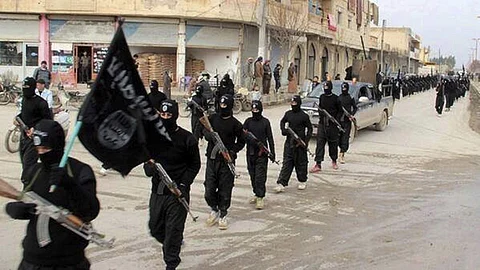

NEW DELHI: With radicalisation emerging as the biggest internal security challenge, the Union Home Ministry is formulating a multi-layered and structured response mechanism to counter the threat from radicalised youth especially those linked to the Islamic State even as the Centre has zeroed in on the Singapore model of counter-radicalisation for mainstreaming the affected youth.
The Home Ministry has also asked the Intelligence Bureau to formulate a Standard Operating Procedure for dealing with radical materials and websites along with a three-pronged counselling system involving the family, clergy and professionals to de-radicalise the infected youth.
In addition, a dedicated Ministry for dissemination of effective counter-narratives to the radical viewpoint is also in the works, according to classified materials accessed by the Express.
“For Indian conditions, among various counter-radicalisation programmes being undertaken by different countries, the Singapore model, a combination of hard security measures and stringent laws along with community involvement, is best suited,” reads the document.
The Singapore model stresses on imparting a sense of belonging to the de-radicalised youth and promotes inter-community harmony besides national integration. The Singapore model has also put in place an elaborate SOP defining the role of the family, teachers and neighbours, especially from communities other than that of the person being de-radicalised.
An elaborate plan is afoot for countering radicalisation of youth by international terror groups like the Islamic State wherein “all the units of the Government apparatus and the entire Muslim community spectrum will be associated actively with the community for counselling affected youths,” according to the document.
A well-coordinated nationwide, round the clock, community-based and multilingual platform for disseminating suitably constructed counter-narratives is being worked out .
While passports of indoctrinated individuals travelling abroad on Indian travel document to join Islamic State are proposed to be revoked, the counter-radicalisation framework will take care of the reformed elements as well the victims of terrorism.
The Government will also seek to rope in eminent religious leaders to come forward with credible counter-narratives and alternatives for counter radicalisation even as efforts will be made to ensure the credibility of persons involved in the process for their acceptance among the community.
As part of the efforts towards counter radicalisation, a close watch will be maintained on foreign receipts of Wahahabi-Salafi platforms that have received substantive foreign receipts over the last few years. The IB has been asked to devise a mechanism to monitor foreign receipts by radical organisations and share the information with the States.
Radicals linked to Islamic State have emerged as the biggest security challenge with the number of youth travelling to the territories controlled by IS increased over the years.
A senior Home Ministry official said a multi-layered mechanism involving various stake holders will be engaged in the counter-radicalisation efforts.
The Home Ministry has recently operationalised the newly created Counter Terrorism and Counter Radicalisation Division in which IB is a major stakeholder and will work with other agencies, including from the States.
A counter-terrorism expert said,” The move to put in place a counter-radicalisation mechanism is in the right direction but the SOP should be comprehensive enough to cover the entire spectrum of radicalisation including those from the Left-wing extremist groups, separatist fundamentalism and right-wing fanaticism. The de-radicalisation efforts should also involve all the communities and not just one particular community. Strong engagement between communities should also be stressed besides proactively using the social media platform for countering radical narratives.”